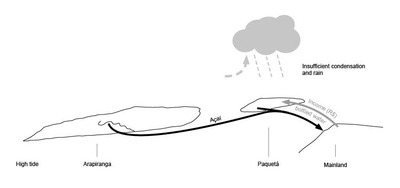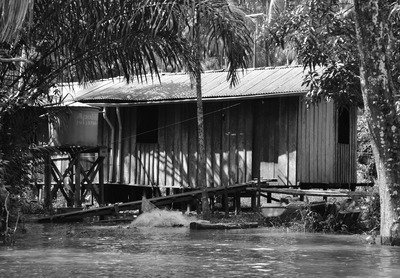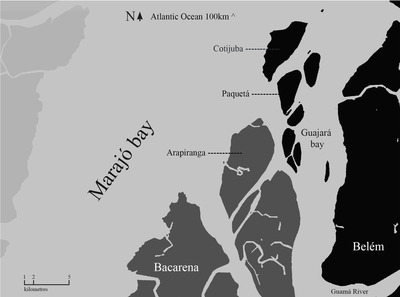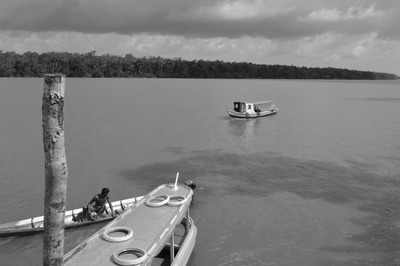Abstract
Across Brazil, including the water rich Amazon region, access to safe drinking water remains a challenge and rainwater harvesting has gained credibility as a technological solution. Complementing a more techno-centric approach, this practice paper analyses initial findings from an 'immersion' that was undertaken in August 2017 on Paquetá and surrounding islands located on the periphery of Belém (Schiffer and Swan, 2018), through the proposed urban island water metabolism framework. As such, the research draws on the 'urban metabolism' concept which can be described as socio-technical, socio-economic, socio-political and socio-ecological flows including water resources, people and information in, out and within the urban environment (Currie and Musango, 2016; Kennedy, Cuddihy and Engel-Yan, 2007). Here this has been adapted to 'urban island water metabolisms'. The research highlights the value of more holistic and situated understanding of water systems in urban island contexts including: the role of intra-island networks that operate beyond municipal borders; accessibility in the contexts of ever changing water levels; and seasonal dimensions. The paper recommends longer-term and comparative research to further the understanding of the specific needs and challenges for water management in these peripheral contexts and to strengthen the urban island water metabolism concept.
More Information
| Identification Number: | https://doi.org/10.3362/1756-3488.18-00010 |
|---|---|
| Status: | Published |
| Refereed: | Yes |
| Publisher: | Practical Action Publishing |
| Uncontrolled Keywords: | Environmental Engineering, |
| Depositing User (symplectic) | Deposited by Clark, Lucy on behalf of Schiffer, Anne |
| Date Deposited: | 21 Jan 2019 09:15 |
| Last Modified: | 22 Sep 2025 12:15 |
| Item Type: | Article |
Download
Note: this is the author's final manuscript and may differ from the published version which should be used for citation purposes.
| Preview
Export Citation
Explore Further
Read more research from the author(s):





![[img]](https://eprints.leedsbeckett.ac.uk/5608/6.hassmallThumbnailVersion/Fig%202%20Diagram.jpg)
![[img]](https://eprints.leedsbeckett.ac.uk/5608/3.hassmallThumbnailVersion/Fig%203.jpg)
![[img]](https://eprints.leedsbeckett.ac.uk/5608/4.hassmallThumbnailVersion/Fig%204%20.jpg)
![[img]](https://eprints.leedsbeckett.ac.uk/5608/2.hassmallThumbnailVersion/Fig%205%20boats.jpg)
 ORCID:
ORCID:  CORE (COnnecting REpositories)
CORE (COnnecting REpositories) CORE (COnnecting REpositories)
CORE (COnnecting REpositories)